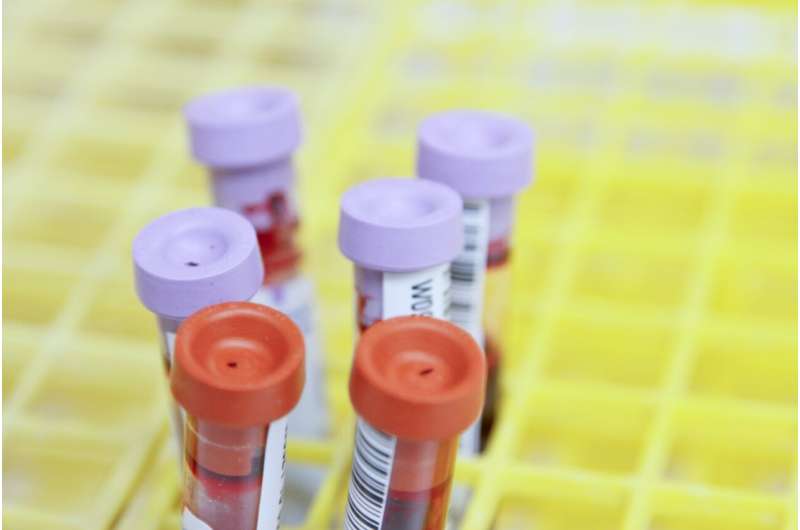
Northwestern Medicine investigators have discovered the mechanisms by which a particular protein promotes cancer cell proliferation and survival in acute myeloid leukemia (AML), according to a Northwestern Medicine study published in Blood.
The findings suggest that PRL2, a protein tyrosine phosphatase, may be a novel therapeutic target for AML, according to Yan Liu, Ph.D., associate professor of Medicine in the Division of Hematology and Oncology and senior author of the study.
AML is a type of blood cancer in which myeloid cells found in bone marrow interfere with the production of different types of blood cells. The cancer has a poor prognosis, and treatments generally include chemotherapy and other targeted therapy drugs. However, treatment resistance is common among patients and the search for more effective therapeutic targets remains ongoing.
An established oncogenic driver of AML pathogenesis is the FLT3 protein, which previous work has shown to be frequently mutated in AML cells. Additional work has also found that PRL2 is highly expressed in FLT3-mutated AML, but the mechanisms by which PRL2 promotes AML pathogenesis have remained unknown.
In the current study, Liu’s team genetically and pharmacologically inhibited PRL2 in mice transplanted with AML cells, discovering that inhibiting PRL2 activity ultimately decreased cancer burden and extended overall survival in the mice.
Subsequent biochemical studies revealed that PRL2 increases FLT3 signaling in leukemia cells through the dephosphorylation of CBL, a ubiquitin ligase protein, which promotes cancer cell proliferation and survival.
Overall, the findings establish PRL2 as an oncoprotein that promotes AML pathogenesis and a novel therapeutic target.
“In the study, we propose that you can either target PRL2 by itself or you could combine the PRL2 and FTL3 inhibitors as a combination therapy in case the patient develops resistance,” said Liu, who is also a member of the Robert H. Lurie Comprehensive Cancer Center of Northwestern University.
More information:
Hongxia Chen et al, PRL2 phosphatase enhances oncogenic FLT3 signaling via dephosphorylation of the E3 ubiquitin ligase CBL at tyrosine 371, Blood (2022). DOI: 10.1182/blood.2022016580
Journal information:
Blood
Source: Read Full Article